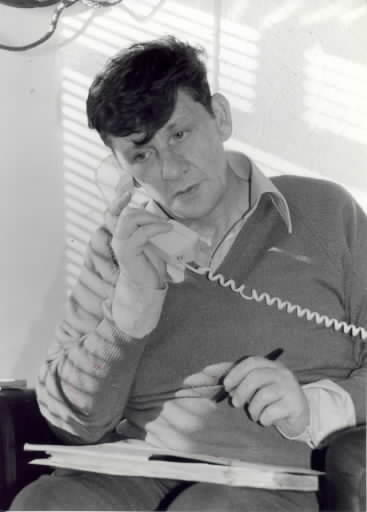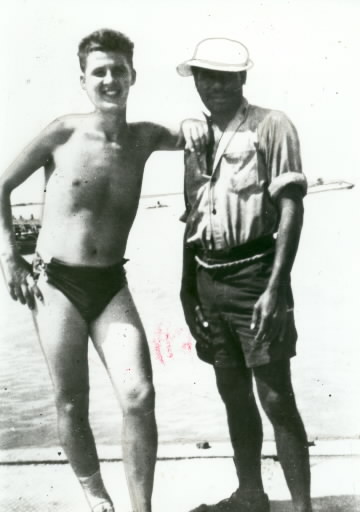2. Hell on Earth
Feb. 15, 2013
Chapter 3: The Central, South Pacific and Australia
Part 5: Victims of Christmas Island
Part 5: Victims of Christmas Island
Ken McGinley of Glasgow was one of four hundred soldiers who sat on the beach at Christmas Island on April 28, 1958, to witness his first nuclear test. "The countdown began, and we covered our eyes with our hands—when the flash came I could see the bones of my hands as if they were in an X-ray." The men on the beach at Christmas Island wore no protective clothing, not even glasses or masks. They were at the mercy of the searing heat, the deafening noise, and the terrifying mushroom cloud that accompanied the explosion of the megaton-class hydrogen bomb.
"It was like hell on earth," said McGinley. There were soldiers who could not stop crying hysterically afterward, and those who were sent home to recover from the shock. McGinley's face, arms, and hands swelled up a few days later, and his entire body was covered in red spots. He was overwhelmed by nausea and was unable to eat anything; sleep was impossible because of the itching and the pain which racked his body.
He was treated at the base hospital, but he never recovered his former health. After McGinley witnessed his second test in August of the same year, the condition of his throat deteriorated, and he was sent to an American military hospital in Hawaii. Tonsillitis was diagnosed, and his tonsils were removed. After he returned to Christmas Island he witnessed three more tests.
"Nobody told us why we were going to Christmas Island and when we left, we were ordered not to tell anybody about what we'd seen there. Even if national security is at stake, that's no reason to destroy the health of your own servicemen."
McGinley's health continued to deteriorate, and in December he was sent back home to Britain. McGinley attended a Christmas service at his local church, but halfway through he started coughing up blood and had to be rushed to hospital. He was operated on for a duodenal ulcer the following year, and was discharged from the army on health grounds, with a small disability pension. He was twenty years old.
Neither the swelling in McGinley's hands and feet, nor his occasional dizzy spells improved, and in 1976 his doctor finally admitted that exposure to a large dose of radiation was probably the cause of his inability to father any children.
"It was a real shock to me. That was when I realized just how much damage those nuclear tests had actually done to my body," said McGinley.
His condition worsened in 1982, just when the army pension was cut by ten percent. McGinley's anger at the government's attitude reached new heights when he tracked down his army medical records and found there was no mention of his ever being hospitalized. "I served my country without knowing what harm it would do to me, and this is how it repays me."









